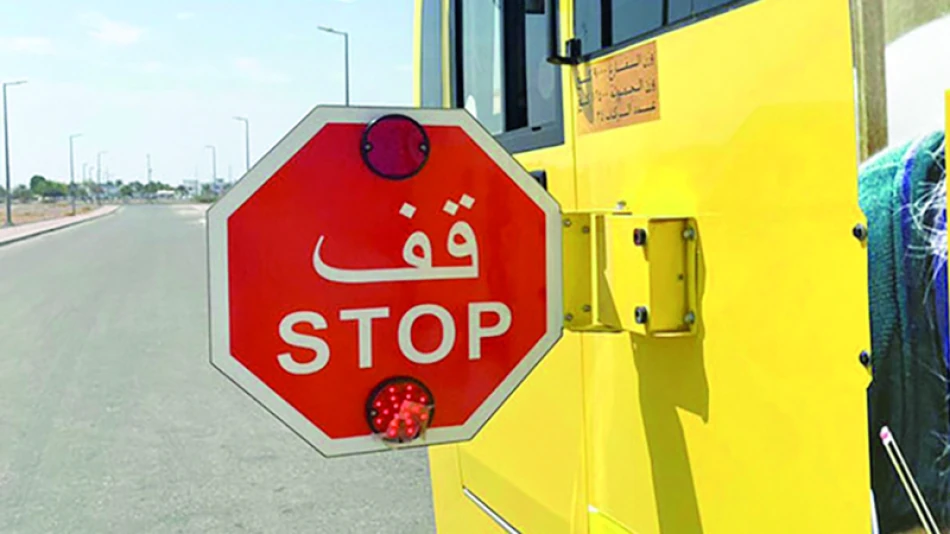
Abu Dhabi Updates Technical Specifications for School Buses, Enhancing Student Safety
Abu Dhabi Transforms School Transport Safety with Smart Infrastructure Overhaul
Abu Dhabi's Integrated Transport Center has completed comprehensive safety upgrades across more than 60 schools, introducing smart monitoring systems and redesigned traffic infrastructure as the emirate positions itself as a global leader in educational transport safety. The initiative, backed by strategic partnerships with police and education authorities, represents one of the most ambitious school transport modernization efforts in the Gulf region.
Comprehensive Infrastructure Assessment Drives Targeted Solutions
The center conducted detailed studies and developed customized solutions for each of the 60+ schools through direct engagement with school administrations and extensive field surveys. This data-driven approach identified specific transport and traffic safety challenges unique to each location, moving beyond one-size-fits-all solutions that have characterized previous regional initiatives.
The resulting improvements include expanded parking capacity for both school buses and private vehicles, alongside enhanced traffic flow management around school perimeters. These targeted interventions address the chronic congestion issues that plague school zones across major urban centers in the Middle East.
Enhanced Bus Safety Standards Set Regional Benchmark
New technical specifications for school buses include additional safety features, with buses carrying more than 40 passengers now required to install supplementary stop signs. This regulation exceeds safety standards in many developed markets and positions Abu Dhabi ahead of neighboring emirates in transport safety compliance.
Smart Technology Integration Revolutionizes Monitoring
The center's continued development of the "Salama" (Safety) smart application represents a significant technological leap in school transport management. This integrated system provides real-time monitoring capabilities that surpass traditional oversight methods used across the region.
The platform enables comprehensive tracking of bus operations, driver compliance, and student safety protocols, creating an unprecedented level of transparency in school transport operations. This technological infrastructure could serve as a model for other Gulf states seeking to modernize their educational transport systems.
Multi-Stakeholder Approach Ensures Implementation Success
The initiative's strength lies in its collaborative framework, bringing together the Department of Municipalities and Transport, Abu Dhabi Police, and school administrations. This multi-agency coordination addresses the typical bureaucratic fragmentation that often undermines large-scale infrastructure projects in the region.
Training Programs Target Operational Excellence
Comprehensive training workshops for operators, drivers, supervisors, and traffic coordinators across Abu Dhabi city, Al Ain, and Al Dhafra region ensure consistent implementation of safety standards. The program's scope, reaching over 900 students in awareness campaigns during the previous academic year, demonstrates the emirate's commitment to behavioral change alongside infrastructure improvements.
Strategic Implications for Regional Transport Policy
Abu Dhabi's investment in school transport safety infrastructure reflects broader economic diversification goals and quality-of-life improvements central to the UAE's Vision 2071. The initiative positions the emirate as a family-friendly destination for international talent, supporting its knowledge economy ambitions.
The comprehensive approach—combining infrastructure upgrades, technology integration, and behavioral change programs—offers a replicable model for other Gulf states facing similar urbanization pressures and safety challenges. As regional governments increasingly compete for international residents and businesses, superior public services like safe school transport become significant differentiators.
The 2025-2026 academic year will serve as a crucial test case for these innovations, with expanded awareness campaigns and field inspection teams providing real-time validation of the system's effectiveness. Success could accelerate adoption of similar integrated approaches across the broader UAE and neighboring countries.
Most Viewed News

 Sara Khaled
Sara Khaled






